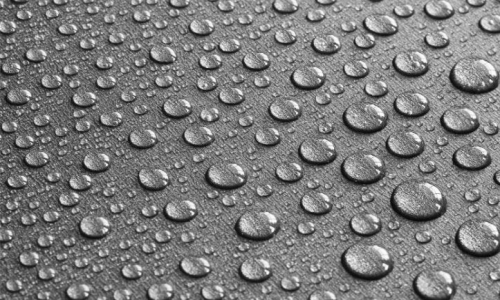


 7:4:59
7:4:59  2024-08-09
2024-08-09  809
809

It's Monday morning, the alarm goes off and it's already 7:30 a.m. – and you're 30 minutes late.
Normally you need 45 minutes to walk the 3 kilometers to work, but this morning you'll be running for 20 minutes.
Yes, but by lunchtime you're feeling more tired and you have the impression that you've expended more energy than usual on the trip. Yet you've covered the same distance as on the other days. How can this be?
The calorie expenditure associated with any activity is called the "metabolic cost", and corresponds to the energy consumed by our organs to cover a given distance.
This metabolic cost can be determined by analysing the oxygen our bodies consume and the carbon dioxide they produce, we can estimate the amount of energy expended, and thus the metabolic cost.
It was using this method that researchers had already answered our question back in the 1970s.
Perhaps not surprisingly, running consumes more energy than walking for the same distance covered. But why?
Energy lost when running
Imagine you're watching someone running. Now look closely at the vertical movement (up and down) of their pelvis and head. As when we run, the distance that our body moves up and down is greater than when we walk.
To produce this vertical movement, the muscles of the lower limbs have to generate more force, and that consumes more energy, yet doesn't bring us any closer to our destination.
So when running, part of the energy expended is used to move our bodies upward rather than forward. The energy needed to cover those 3 km is therefore higher for running than for walking.
This difference between walking and running is not confined to what happens during the activity itself. In fact, each physical exercise causes a delayed expenditure of energy, which is added to the expenditure during the activity.
Taking this into account, it's once again running that uses more energy than walking. Immediately after running your 3 km, the increased energy consumption (compared with resting) lasts for several minutes, mainly because of the increase in body temperature and the replenishment of energy reserves.
This additional expenditure after running is more than twice that observed after walking, due to the difference in intensity between the two exercises.
It all depends on speed
Running therefore involves a higher calorie expenditure than walking for the same distance covered. But this is on condition that the walking speed considered is "normal" (around 5 km/h).
So, if we walk very slowly, it will take us so long to cover the 3 km that the calorie expenditure will be greater in the end. This is because the body expends a certain amount of energy per unit of time no matter what, regardless of the activity performed (known as the "basal metabolic rate").
The same applies if the walking speed is very fast (more than 8 km/h): running is more energy-efficient. Here, the coordination required to walk at such a speed means that we need to activate our muscles more, without being able to take advantage of the elasticity of our tendons, as is the case with running.
Moreover, we have a very precise intuitive perception of the energy efficiency of a particular style of movement. If we're on a treadmill whose speed gradually increases, the point at which we spontaneously switch from walking to running coincides with the moment when it would become more energy-consuming to walk than to run.
In conclusion, because of greater oscillation of the center of mass and increased energy expenditure after exercise, running to work is more energy-intensive than covering the same distance by walking.
But remember, whether you choose to walk or run to work, the most important thing is that you're already saving energy!
Reality Of Islam |
|

New scienti

This is the

A computer

Auburn Univ
 9:3:43
9:3:43
 2018-11-05
2018-11-05
10 benefits of Marriage in Islam
 7:5:22
7:5:22
 2019-04-08
2019-04-08
benefits of reciting surat yunus, hud &
 9:45:7
9:45:7
 2018-12-24
2018-12-24
advantages & disadvantages of divorce
 11:35:12
11:35:12
 2018-06-10
2018-06-10
 6:0:51
6:0:51
 2018-10-16
2018-10-16
 10:35:40
10:35:40
 2022-05-26
2022-05-26
 9:50:37
9:50:37
 2023-02-28
2023-02-28
 2:5:14
2:5:14
 2023-01-28
2023-01-28
 8:4:21
8:4:21
 2022-01-08
2022-01-08
 4:2:19
4:2:19
 2022-10-10
2022-10-10
a hero waters thirsty wild animals
 9:4:9
9:4:9
 2022-01-06
2022-01-06
 6:28:21
6:28:21
 2022-12-20
2022-12-20
 5:41:46
5:41:46
 2023-03-18
2023-03-18
| LATEST |